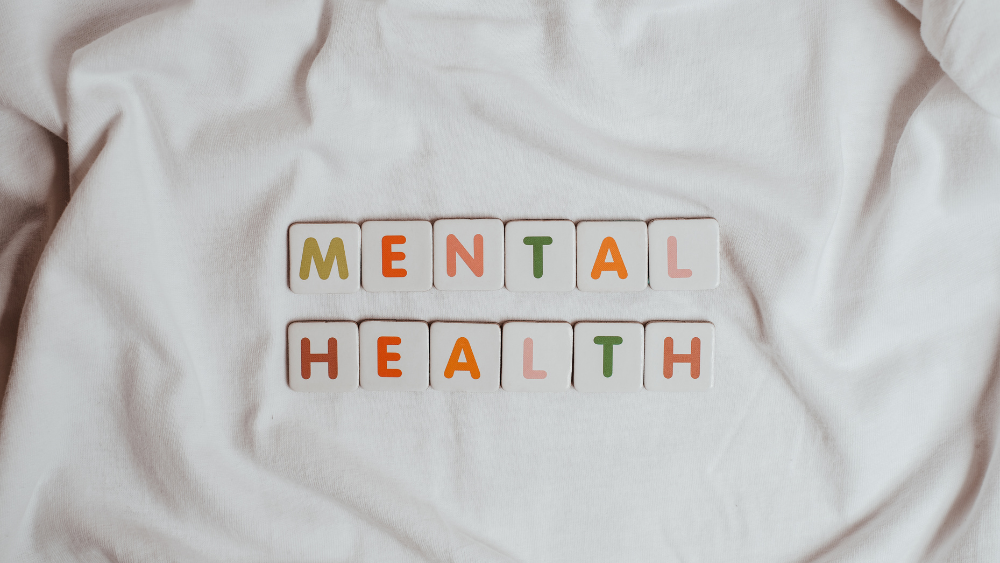September 24, 2024 | Dr. Silvana Jakupovic, ND
World Mental Health Day is a global platform for raising awareness and advocating for mental health issues. This year, as we reflect on the diverse approaches to mental wellness, there is an unconventional yet increasingly popular subject: functional mushrooms. Long respected in various traditional medicines and now gaining attention in the Western world, these natural remedies are emerging as potential options for mental well-being.
Understanding Functional Mushrooms for Mental Health
Functional mushrooms are a group of fungi known for their health-promoting properties. While the use of mushrooms for healing purposes dates back thousands of years in Eastern medicine, it’s only recently that Western science has begun to acknowledge their potential.
These are distinct from culinary mushrooms, like button or portobello, which are eaten for their flavour and nutritional value. They are also different from psychedelic mushrooms, which contain psychoactive compounds and are used primarily for their mind-altering effects.
The Science Behind Mushrooms and Mental Health
Functional mushrooms contain a variety of bioactive molecules, including polysaccharides and terpenoids, which are believed to contribute to their health benefits. They can be consumed in various forms – as dietary supplements, mushroom extracts, mushroom teas, or mushroom powders – making them a versatile addition to any wellness regimen.

Lion’s Mane to Support Anxiety
Recent developments in research have illuminated the mental health advantages of Lion's Mane, especially its efficacy in addressing conditions such as anxiety, sleep disturbances, and binge eating disorders.
A notable study involving overweight participants revealed that an eight-week supplementation with Lion's Mane elevated pro-brain-derived neurotrophic factor (pro-BDNF), a precursor to BDNF, vital for brain health [1]. Insufficient BDNF, or a malfunctioning in its processes, can lead to a reduction in excitatory neurons and glutamate, potentially triggering a range of mood disorders [2].
Further research highlights the ability of Lion's Mane to alleviate mild anxiety symptoms, focusing on its anti-inflammatory attributes and its role in promoting neurogenesis (the creation of new neurons) [3]. Particularly significant is the observation that Lion's Mane stimulates neuronal growth in the hippocampus, a critical area for processing emotions and memories.
This finding is crucial in understanding the connection between the hippocampus and mood disorders, as previous studies have shown that individuals with certain mood disorders often have a hippocampal region smaller than average. Consequently, the potential of Lion’s Mane to foster neurogenesis in the hippocampus could be an essential element in developing alternative treatments for anxiety and similar conditions [3].
Lion’s Mane for Mental Health
In the context of depression and the role of functional mushrooms in mental health, it’s essential to comprehend the brain's structure and functioning. The hippocampus, integral for regulating emotions and memories, often appears reduced in size in cases of depression, indicating diminished brain circuitry in this region [3].
A pivotal study demonstrated that Lion’s Mane could exert antidepressant effects by facilitating neurogenesis in the hippocampus, enhancing brain function and potentially relieving symptoms of mood disorders [3]. Among the compounds in Lion's Mane, hericenones stand out for their ability to cross the blood-brain barrier, which is crucial for impacting brain health [4,5]. These compounds improve neurocognitive impairments, stimulate brain cell growth, and exhibit anti-inflammatory and antidepressant-like effects.
Lion’s Mane Memory Improvement for ADHD
For individuals with ADHD, who often struggle with long-term memory recall, Lion’s Mane shows promise [5]. Research indicates that hericenones and erinacine in Lion's Mane enhance neurogenesis, particularly in the hippocampus and cerebellum, areas pivotal in learning and memory. This suggests that the memory-enhancing properties of Lion’s Mane could be attributed to its ability to promote new neural growth in these critical regions [6].
ADHD is frequently linked to reduced brain-derived neurotrophic factor (BDNF), a protein crucial for regulating various brain functions, including attention, emotion, social behaviour, and motor control [7]. Extracts from Lion's Mane have increased BDNF levels in the brain [8]. This boost in BDNF and other neurotrophic factors might help alleviate symptoms associated with ADHD, offering a hopeful alternative for those seeking natural adjuncts to conventional therapies.

Reishi Mushroom to Support Anxiety
Anxiety is commonly linked with sleep problems, where excessive worry and ongoing thoughts can interfere with the ability to both fall asleep and stay asleep. The tranquilizing effects of Reishi mushrooms on sleep patterns and phases have been a subject of research interest.
Studies show that Reishi can increase total sleep time and lengthen the non-rapid eye movement (NREM) sleep phase, leading to more profound and restorative sleep [9]. Although the precise mechanisms of these effects are not entirely understood, the results are statistically significant and underscore Reishi’s potential to improve sleep quality for those suffering from anxiety.
Reishi Depression Relief
Research has identified that the polysaccharides of Reishi mushrooms have antidepressant qualities [10]. One study revealed that Reishi could generate antidepressant and anti-anxiety effects by inhibiting 5HT2A receptors, functioning similarly to certain antidepressant medications [11].
These receptors are thought to play a role in various mental health conditions, including depression, anxiety, obsessive-compulsive disorder (OCD), and insomnia [12]. Therefore, incorporating Reishi into a treatment plan could be beneficial in reducing depressive symptoms and tackling associated issues such as anxiety and sleep disturbances.
Reishi Mushroom Benefits for ADHD
In ADHD, symptoms of hyperactivity are often seen in behaviours like constant fidgeting, inability to sit still, excessive talking, and impatience [13]. Reishi mushrooms may offer sedative qualities that help soothe those dealing with hyperactivity [14].
Moreover, ADHD is frequently accompanied by sleep challenges, which can lead to daytime fatigue or disruptions in natural sleep-wake cycles [15]. The exact origins of these sleep issues might be linked to ADHD-related behaviours such as restlessness, poor sleep habits, and pre-sleep use of electronic devices. As previously discussed, Reishi can be instrumental in promoting deeper, more rejuvenating sleep.

Cordyceps to Support Anxiety
Cordyceps has been gaining recognition for its potential in helping to manage anxiety disorders. Research has shown a link between lower levels of ATP (adenosine triphosphate), a vital energy molecule in the body, and mood disorders such as anxiety [16]. Cordyceps stands out for its ability to boost ATP production, which is likely attributed to its antioxidant properties, which enhance the antioxidant status at both cellular and mitochondrial levels, thus promoting ATP generation [17].
Additionally, anxiety can often trigger a perpetual state of “fight or flight,” leading to erratic energy levels and a feeling of fatigue. The relentless alertness can be physically draining. In this context, Cordyceps is beneficial in augmenting energy production through the previously mentioned mechanisms and helping maintain consistent energy levels throughout the day [17]. This property positions it as a promising natural option for those experiencing the energy-draining effects of anxiety.
Cordyceps: Mood Enhancement
Studies have highlighted that extracts from the Cordyceps mushroom possess anti-depressive and anxiety-reducing properties. These effects are primarily attributed to the mushroom’s ability to reduce inflammation and interact with certain neurotransmitters [18].
A significant observation from these studies is that Cordyceps substantially lowered glutamate levels in the brain's amygdala region. This is a critical finding, considering the emerging evidence pointing towards a relationship between glutamate and depression [19]. There is a growing hypothesis that imbalances in glutamate, both within the brain and the gut, may play a role in the onset and progression of depressive disorders.

The Future of Functional Mushrooms in Mental Health Care
As we peer into the future of mental health care, functional mushrooms stand out with promising potential. The ongoing research in this field unravels the mysteries of these ancient remedies and paves the way for new, innovative treatments. Integrating these natural elements into mental health strategies represents a fusion of traditional wisdom and modern science, a trend gaining momentum in holistic health circles.
Future studies are expected to investigate deeper into the neuroprotective and psychotropic effects of functional mushrooms. This research could lead to the development of new supplements or medications derived from these fungi, specifically targeted at mental health disorders. Moreover, as the stigma surrounding mental health continues to diminish, the openness to alternative therapies like functional mushrooms is likely to increase.
However, this journey has its challenges. Skepticism remains, particularly in the medical community, due to the limited scale of current studies and the variability in mushroom quality and potency. Addressing these concerns will require rigorous scientific research, standardized production practices, and comprehensive educational efforts to inform practitioners and the public.
Remember, the journey to mental well-being is deeply personal and varies from individual to individual. For World Mental Health Day, let's embrace the spirit of openness and curiosity, exploring all avenues that promise to enhance our mental health and overall well-being.
As we continue to break down barriers and expand our understanding of mental health, the role of natural remedies like healthy mushrooms becomes more significant. Their potential to contribute to a more balanced, holistic approach to mental health is a frontier worth exploring, with discoveries on the horizon.




















Leave a comment
All comments are moderated before being published.
This site is protected by hCaptcha and the hCaptcha Privacy Policy and Terms of Service apply.